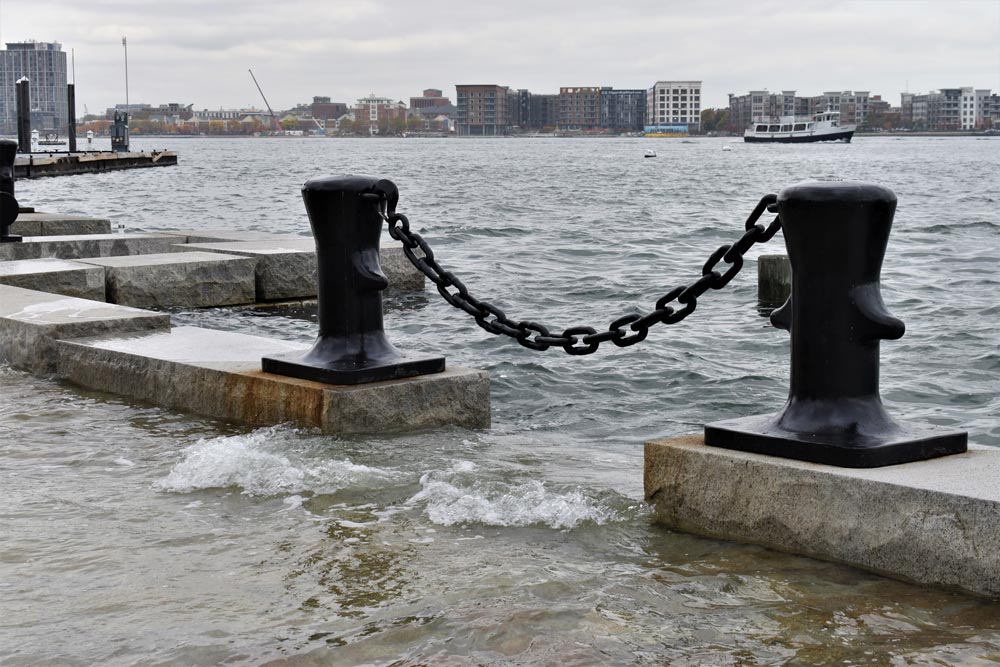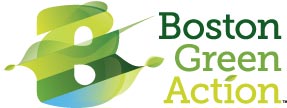We’re attuned to a host of environmental urgencies that impact Boston and beyond. Here are some of our current priorities.
What actions can YOU take?
- Volunteer
- Attend meetings, rallies, and hearings
- Write timely letters to policy makers, corporations, and media outlets
- Spread the word among friends and colleagues
- Donate
- Visit our allies’ websites and get involved!
Urban Wild
Boston Mayor Wu’s new Urban Forest Plan, designed to enhance and protect the city’s tree canopy, should have a direct bearing on the fate of Crane Ledge Woods (CLW) in the City’s Hyde Park neighborhood. CLW is a rare environmental asset slated for destruction unless the City intervenes to safeguard open greenspaces and ensure residents’ quality of life.
We acknowledge the scarcity of locations for new housing developments. In this case, alternative and more advantageous options exist. Destruction of an irreplaceable urban wild is not a viable, sustainable, or ethical path forward.
Get involved with: Audubon Society, Crane Ledge Woods Coalition, Emerald Necklace Conservancy, Environment Massachusetts, Sierra Club MA, The Trust for Public Land, The Trustees of Reservations
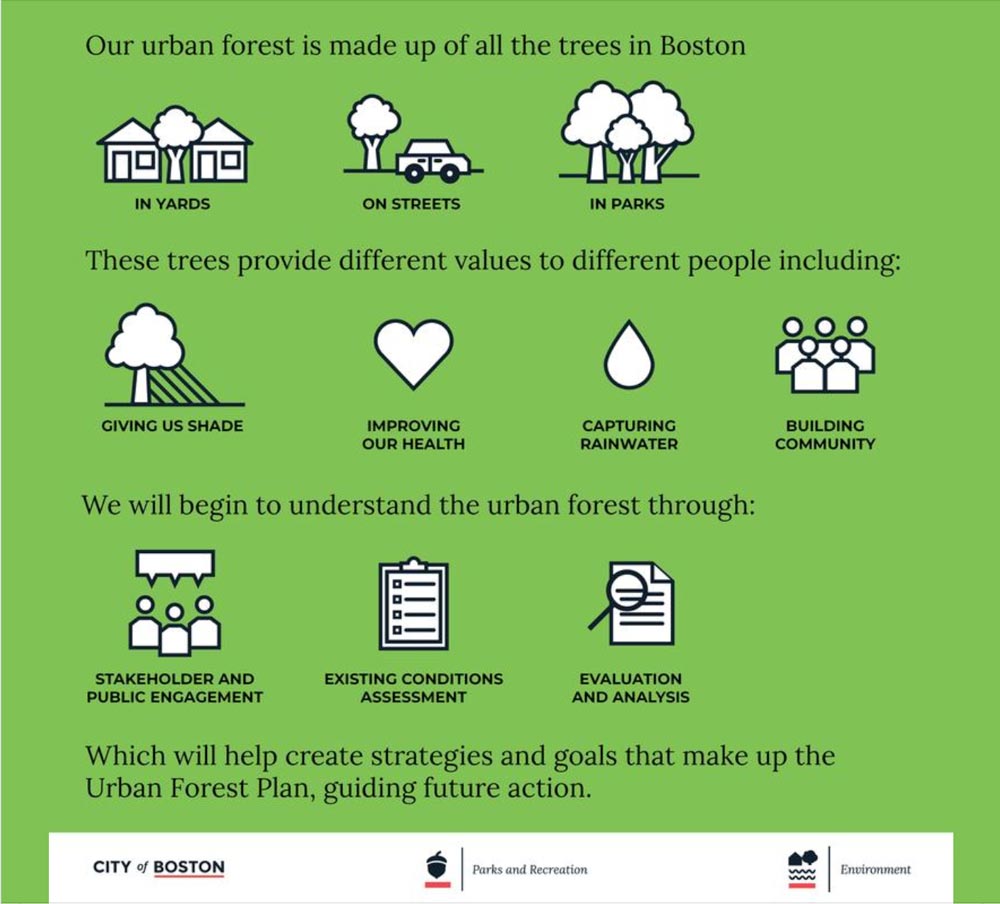
Methane in Your Home
Methane is a major contributor to extreme climate events. In our homes, it poisons the air we breathe. Communities need to insist on electric alternatives (heat pumps, induction stoves as well as traditional electric cookers), especially those generated by non- or low-polluting sources of energy such as wind power, solar panels, and hydro power. Renewable natural gas is still methane; it leaks, burns, and pollutes the same as its “natural” version.
Gas utilities that peddle “fossil-free fuels” must be held to account.
Get involved with: Gas Transitions Allies, Mothers Out Front, Pipe Line Awareness Network, Sierra Club MA, Third Act, 350 Mass, 350.org

Electric Vehicles and Charging Stations
In Boston, a paucity of accessible chargers is the main reason people give for not purchasing EVs. Public charging is mainly limited to municipal parking lots and commercial parking lots at, for example, grocery stores.
Building owners and managers should be encouraged to take advantage of existing incentives to install EV chargers. For those without parking lots, a number of promising avenues are emerging. These include potential partnerships between the city and property owners, which would involve the installation of low-profile curbside charging stations that connect to the building’s electricity supply.
Get involved with: Green Action Consumers Alliance
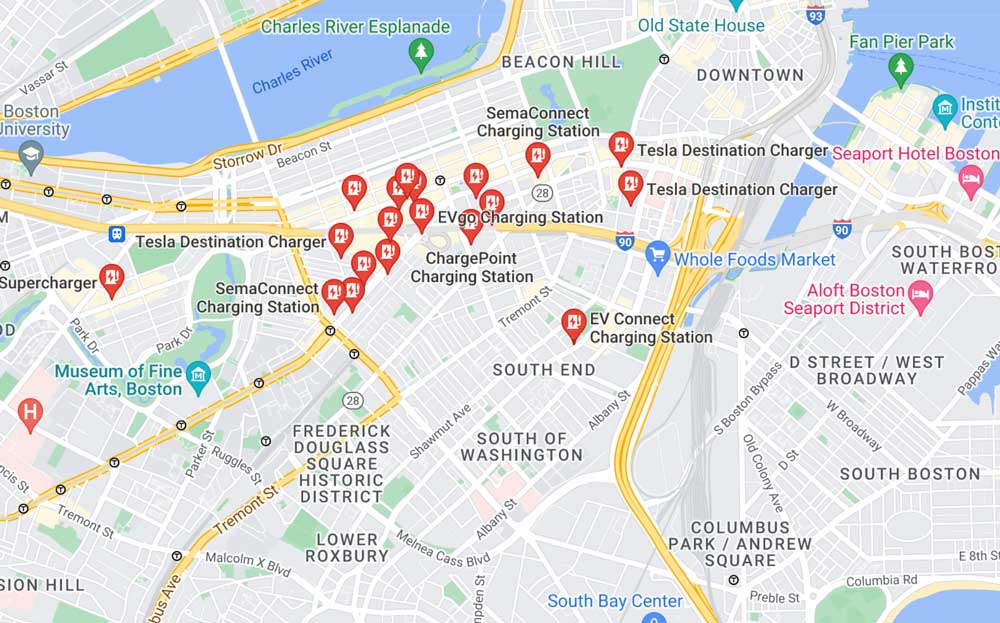
Energy: Who Benefits?
We all require access to energy to satisfy our most fundamental needs such as shelter and safety, as well as higher-level needs generated by our economic, social, group and individual activities. The utility suppliers that own fossil fuel power plants benefit, while consumers absorb the costs of the damages to our health and environment. Poorer communities suffer to a greater extent in terms of health and quality of neighborhood life because pipelines and grid substations are commonly located in their midst.
One of Boston Green Action’s goals is to provide information and offer ideas for achieving greater equity—while reducing the harmful repercussions of our use of energy sources. This will require exploring all possibilities offered by new energy technologies, sources, and supply channels, as well as critical changes in policies, regulations, and incentives.
Get involved with: Boston Clean Energy Coalition, Boston Climate Action Network, Boston Green New Deal Coalition, Environmental League of Massachusetts, Gas Transition Allies, HEET, Massachusetts Climate Action Network, Metropolitan Area Planning Council, Mothers Out Front, The Acadia Center, 350 Mass, Union of Concerned Scientists
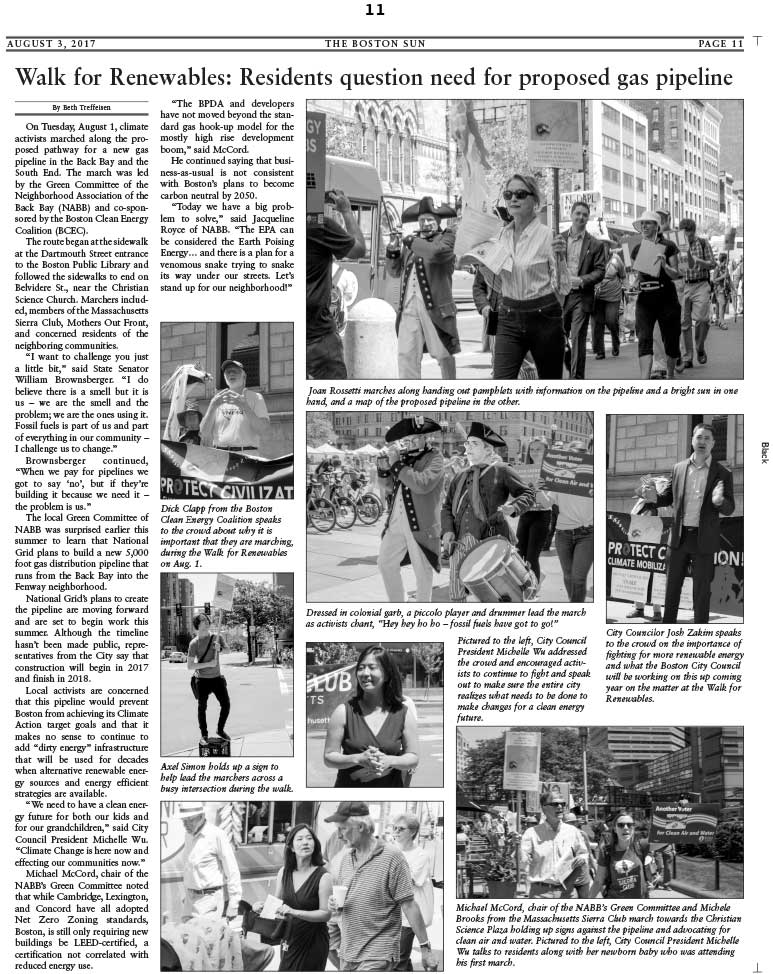
Clean Water, Healthy Rivers
Forty years ago, Congress passed the Clean Water Act of 1972, promising fishable, drinkable, and swimmable water across the nation. The Act makes it unlawful to discharge any pollutants from a point source into navigable waters unless a permit is obtained. The EPA Office of Water ensures safe drinking water and restores and maintains oceans, watersheds, and aquatic ecosystems to protect human health, support economic and recreational activities—and provide safe habitat for fish, plants, and wildlife.
These recommendations continue to be tested and battled over today by concerned citizens, environmental organizations, and private for-profit businesses.
Get involved with: American Rivers, Charles River Watershed Association, Conservation Law Foundation, Emerald Necklace Conservancy, Honor the Earth Water Protectors, Muddy River Initiative
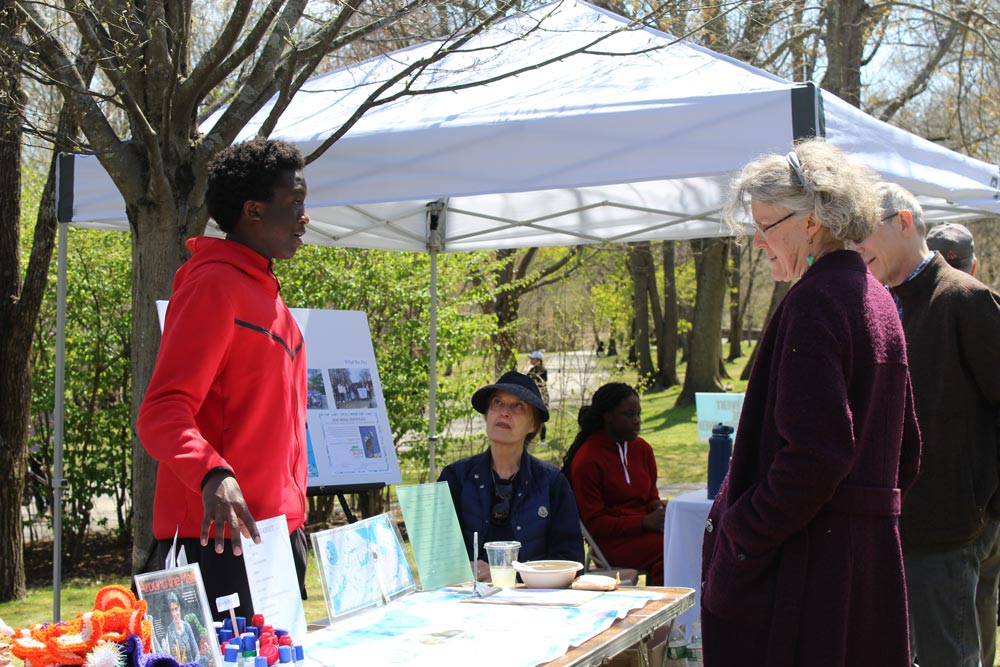
Urban Tree Canopy
The benefits of trees go well beyond providing shade to those below. Trees limit the build-up of heat on urban surfaces, reducing damage to infrastructure. They reduce energy demand, trap air pollutants, support urban biodiversity and sequester carbon, which is important in the fight against global warming.
Many options exist to integrate trees in urban areas by using existing open spaces such as parking lots, walking and cycling corridors, and bus stops. Planting trees in children’s playgrounds has been shown to benefit children’s development. Private land can also be incorporated by the provision of free trees or rebates for tree planting.
Get involved with: Audubon Society, Charlesgate Alliance, Crane Ledge Woods Coalition, Emerald Necklace Conservancy, Environment Massachusetts, Sierra Club MA, Speak for Trees
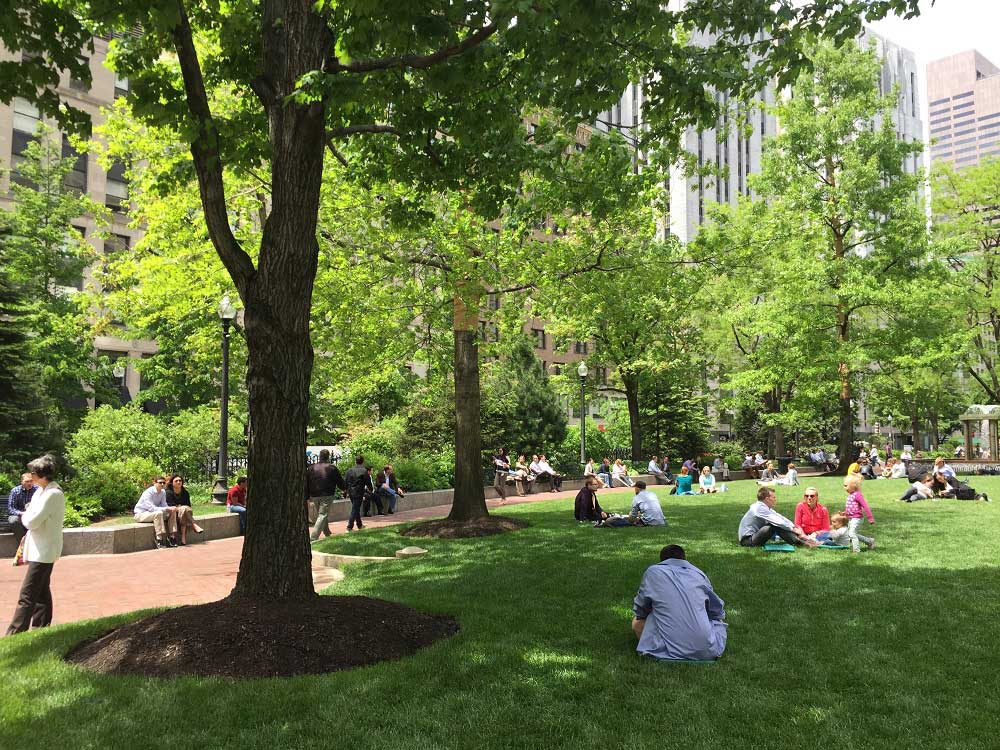
Rising Tides
Without urgent action to curb planet-warming pollution, sea levels in the Northeast could rise almost 2 feet by 2050. Sea level rise is already causing more frequent coastal flooding along low-lying shorelines, jeopardizing hundreds of thousands of homes and businesses, particularly in already marginalized communities.
Carbon-Free Boston takes a multi-dimensional approach: working on reducing GHG’s in different sectors of the economy, while also paying attention to those front-line communities hardest hit by the consequences of the GHG emissions and other pollutants. Preparing for Climate Change (also known as Climate Ready Boston) addresses a range of issues, including rising temperatures and coastal resilience. All of these plans—and their myriad implementation details—require concerted community involvement.
Get involved with: Boston Harbor Now, Greenpeace, Environment Mass, Living on Earth, Sea Level Rise, Sierra Club MA
